David Fincher The Rolling Rock Job interview
The boundary-pressing filmmaker behind ‘Mank’ displays on his career, his trip into Hollywood’s previous and the industry’s uncertain potential future
- Show even more sharing choices
- Tumblr
- Pin It
- Printing
When David Fincher sat down with Netflix executives in the springtime of 2019, he didn’t be prepared to be handed the same as a blank check. Certain, the 58-year-older filmmaker — a former music-video wunderkind most widely known for pressing the envelope with baroque serial-killer thrillers (Seven), toxic-masculinity satires (Combat Club) and social-press origin stories (The SOCIAL NETWORKING) — had been a name-brand name director, and acquired helped start the golden age group of streaming with the wall plug’s very first original series, Home of Cards. But Fincher has been used to resistance. It is possible to’t possess this budget. It is possible to’t show that story. What can you suggest, you’re performing a Television show, for a mail-purchase DVD business, and all of the episodes arrive out simultaneously?!
When Fincher was informed by his patrons at the business that they were thinking about helping him create anything he needed, he considered a long-dormant work of like: a script his past due father, Jack Fincher, wrote about the producing of Citizen Kane. Not really the tale of the excellent director, producer, superstar and co-article writer who, at a precociously youthful age, got Hollywood by storm along with his rise-and-drop drama. This is the tale of the alcoholic screenwriter who was simply employed to pen the script, originally titled United states, and then inserted an individual grudge contrary to the powers that become in to the greatest movie ever.
Fincher wished to shoot it in black-and-white. He wished to use a large amount of old-fashioned stylistic nods to Hollywood films of the ‘40s, as though the film had simply been uncovered in a vault after 80 yrs of collecting dust. And yes it would include an obscure chapter in California’s political background regarding Upton Sinclair’s 1934 operate for governor and a disinformation marketing campaign allegedly masterminded by studio execs. It had been a shot at night. By his own entrance, Fincher couldn’t think it when Netflix stated yes.
To notice Mank, Fincher’s throwback ode to the Golden Age group of Tinseltown USA, nevertheless, is to understand why they do. Chronicling the way the broken-down author Herman J. Mankiewicz (performed by Gary Oldman) assisted permanently change film being an talent, his movie can be an audacious, difficult, stylistically daring and completely enjoyable yarn — the type of retro nod to a bygone period which makes you feel as if you’ve injected each day’s well worth of TCM development into your veins. Nonetheless it’s furthermore a complicated drama about complicity, the cost of speaking reality to strength and the manipulation of contemporary mass media, which couldn’t make the movie feel even more urgent.
Over a two independent two-hr conversations from his house in LA, Fincher discussed getting this tribute to his dad (who died in 2003) to the display screen, his popularity as a taskmaster on established, why he’s sorry Fight Golf club pissed off a fellow filmmaker, and much more.
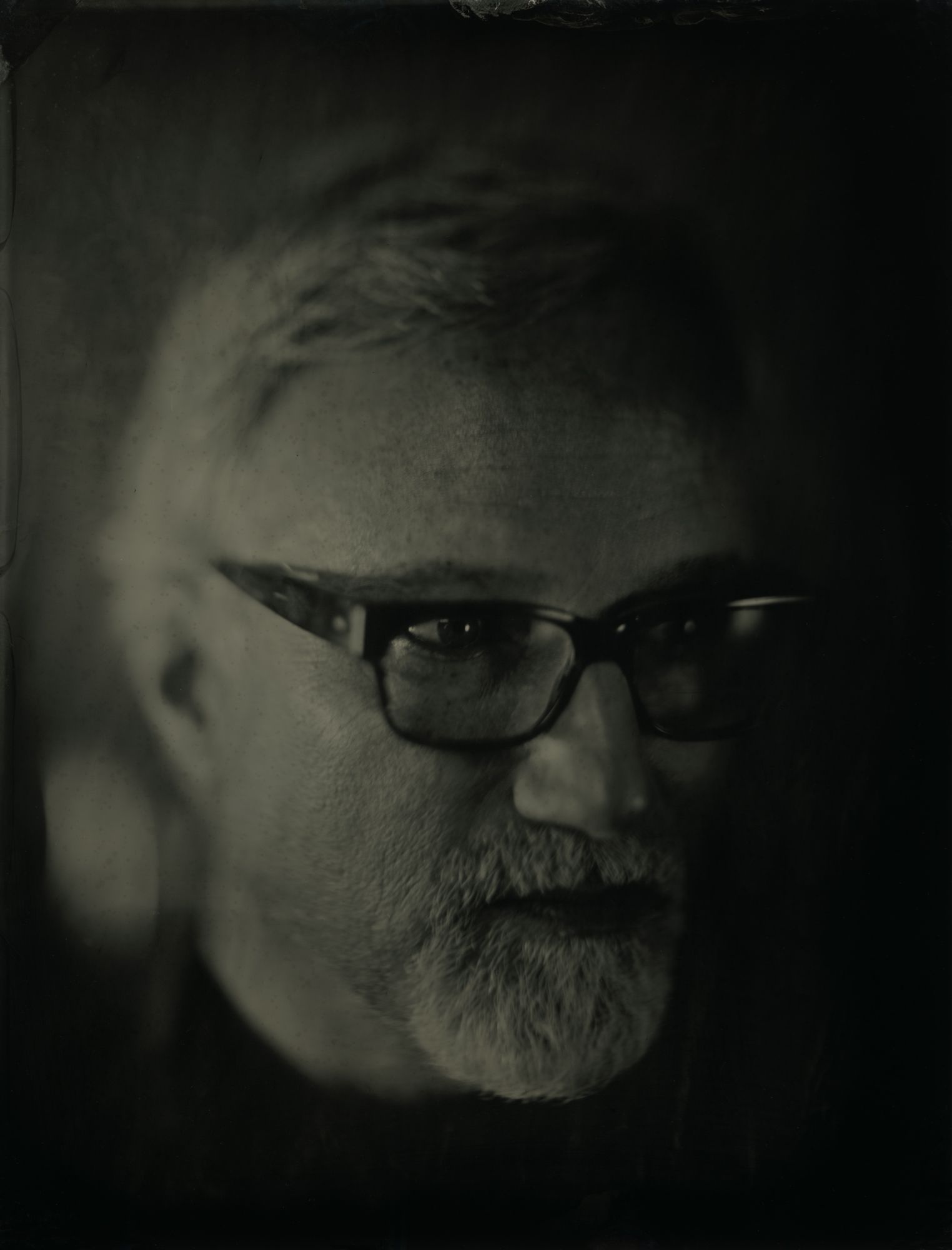
Photograph by Gary Oldman*
How did your father find yourself writing the Mank screenplay?
My father wrote for a number of magazines: Psychology Today, Sports activities Illustrated, Reader’s Digest. He’d created a novel in the 1950s or Sixties, I believe, and burned it. He’d composed a few screenplays in the 1970s. After he’d retired, he had been looking for a problem, and explained, “I’m considering writing another script. Exactly what is a story you want to find out about?”
When I has been growing up, he often explained Citizen Kane is the foremost movie actually made. That has been received wisdom, a long time before I actually had the opportunity to actually view it, when I had been 12. We’d talked during the past about this Pauline Kael essay, “Increasing Kane,” and the complete time he’d been informing me concerning the power and impact of that film, Herman Mankiewicz’s name in no way came up. THEREFORE I said, “Hmm. It’s generally fascinated me, this friction between Mankiewicz and Welles to make Citizen Kane. No-one’s informed that story.” And he mentioned, “Oh.” After all, he wanted challenging! [Laughs.] I didn’t also think he’d surface finish it.
You will want to?
Pay attention, when I was 12 or 13, somebody showed my father a magic technique, something with cards that has been alphanumeric. He became enthusiastic about this thing, and actually stopped eating and resting for about six, a week as he figured it out. Plenty of Robert Graysmith in Zodiac is founded on his particular character traits. He was susceptible to disappearing down rabbit holes.
Do you obtain that trait from him?
I’d file that beneath the dime-shop psychology of Rosebud [laughs], but no. I acquired might work ethic from my mom: “Anything you do, do together with your might, items done by halves should never be done ideal.” And my dad had some sort of endless inquisitiveness. THEREFORE I think I were left with 22 chromosomes of every.
But he wrote this matter that … again, that is all interpretive, because I discover Kael’s essay to end up being fascinating, and today, from what I understand about how films are actually made, nearly inapplicable to moviemaking. Whole essays could possibly be written on which Pauline Kael didn’t realize about how films got produced. And it’s had not been her job to learn the way the sausage got produced. It had been her job to guage and flavor the sausage. I am aware that.
My father experienced a C plus, B minus in the way the sausage was produced, but that’s inadequate with regards to creating a movie concerning the movies. His initial pass was a small amount of a screed contrary to the DGA [Directors Guild of The united states]. Ironically, by enough time I study it, I had simply finished my 1st studio picture [Alien 3], which have been the antithesis of a article writer’s eyesight being railroaded by way of a megalomaniac. It has been only a nightmare. I stated, “I believe that overly simplistic, and I believe in my newfound knowledge as a director of a large studio picture with plenty of moving parts and lots of people involved, it appears to me as if you have skipped the forest for the trees, maybe.”
Can you that believe your dad linked to Mankiewicz?
Personally i think like Mankiewicz sensed like he had been slumming — he’s this jaded NY author who doesn’t have plenty of reverence because of this newly minted talent in Hollywood. Unlike Mank, my father had enormous regard for the craft of screenwriting. But simply because a magazine article writer, I’d think my father could relate with him by doing so. And y’understand, as a music-video director, I possibly could relate, as well.
What can you mean?
After all, I’ve made Michael Jackson movies, and folks were going, “Oh, my God, they’re so excellent!” And you move, “Yeah, but After all, it’s a Michael Jackson movie. Let’s not really blow this out of proportion right here.” Ultimately, when I was producing video clips for the Rolling Stones and Madonna and the larger ones that cost even more, I’d often waive a charge, because I experienced, “My God, I talked them into spending $800,000. They’re likely to function as ones writing the look for this, not really me.” With music movies, you’re looking for a place where in fact the artist feels comfy, and you also feel like you’re providing them with their money’s worthy of. That’s it.
I believed the script was great for a biopic, and that my dad found a way to getting these witticisms related to Herman Mankiewicz down in a manner that it actually offered you insight into who he has been. He’d done the study. I was thinking about the individual. But I wasn’t thinking about some type of posthumous arbitration over who produced Citizen Kane. He actually sensed that that conflict had been the driving motor of finished .. And I must say i felt that that appeared like a film of the week. Therefore we decided to disagree and I proceeded to go off to create Seven.
Clearly, there is a big change of heart on the way…
He noticed a documentary on Upton Sinclair and the 1934 gubernatorial race in California, therefore Jack came back if you ask me and said, “I believe if we fold this in, it’ll be a fascinating point for Mankiewicz.” I believed, “How? I don’t understand.” And it became clear we’re able to have both of these poles he could sort of vacillate between, that was: “There’s the matter that I want my title on, and there’s finished . I never desire to be connected with,” and he’s type of equally in charge of both of these. That I acquired.
There are a great number of people who would believe you’d visit a kindred spirit in Welles instead of Mankiewicz, because . . .
I certainly perform.
. . . you found Hollywood with a successful background in something besides function filmmaking. You’d success at an extremely early age group and started your personal company. And—
And I’ve a goatee, yes, but . . . [laughs] I would like to be really very clear, since it’s become this type of fucking concern with the press with this movie: I’m an enormous Orson Welles enthusiast. I stand on his shoulders each day. He has been a genius, which movie is not made to take some of that from him. Citizen Kane can be an Orson Welles jam. But there have been certain things beneath it that are certainly a Mankiewicz jam. Moviemaking is really a collaborative hard work. It simply is.
But there are some name-brand directors around nowadays, and you also’re one of these. Your title means something.
Look, I visit Steven Soderbergh films because I understand it’s likely to be a tale that’s deftly told. I head to Sam Mendes films because I understand there’s likely to be an focus on details. But I’m discussing the fantasy of the auteur concept, which is that you could etch something in granite, wheel it right into a preproduction getting together with, state, “This is exactly what the film is. I’ll maintain my trailer.” And that may be imparted to 85 individuals who may then execute your “eyesight.” It’s not the way the procedure functions. It’s not really how I believe. It’s similar to, “How do you tell this story along with I could tell it?” Should you choose that more than 3 x, you’re doing good.
Your dad was near 60 when he very first started focusing on this, correct?
He had been around that age group, yeah, and there is without doubt that there’s an extremely . . . After all, I feel it today. I didn’t sense it at that time. You understand, I was 30 yrs . old. So, if you ask me, the midlife-crisis facet of it was dropped on me at that time. I has been too young to understand it. Now, I could see he had been going through reasons for having the legacy of Mankiewicz, and their own legacy, that I might have already been dismissive of. I’m not really dismissive about those ideas right now.
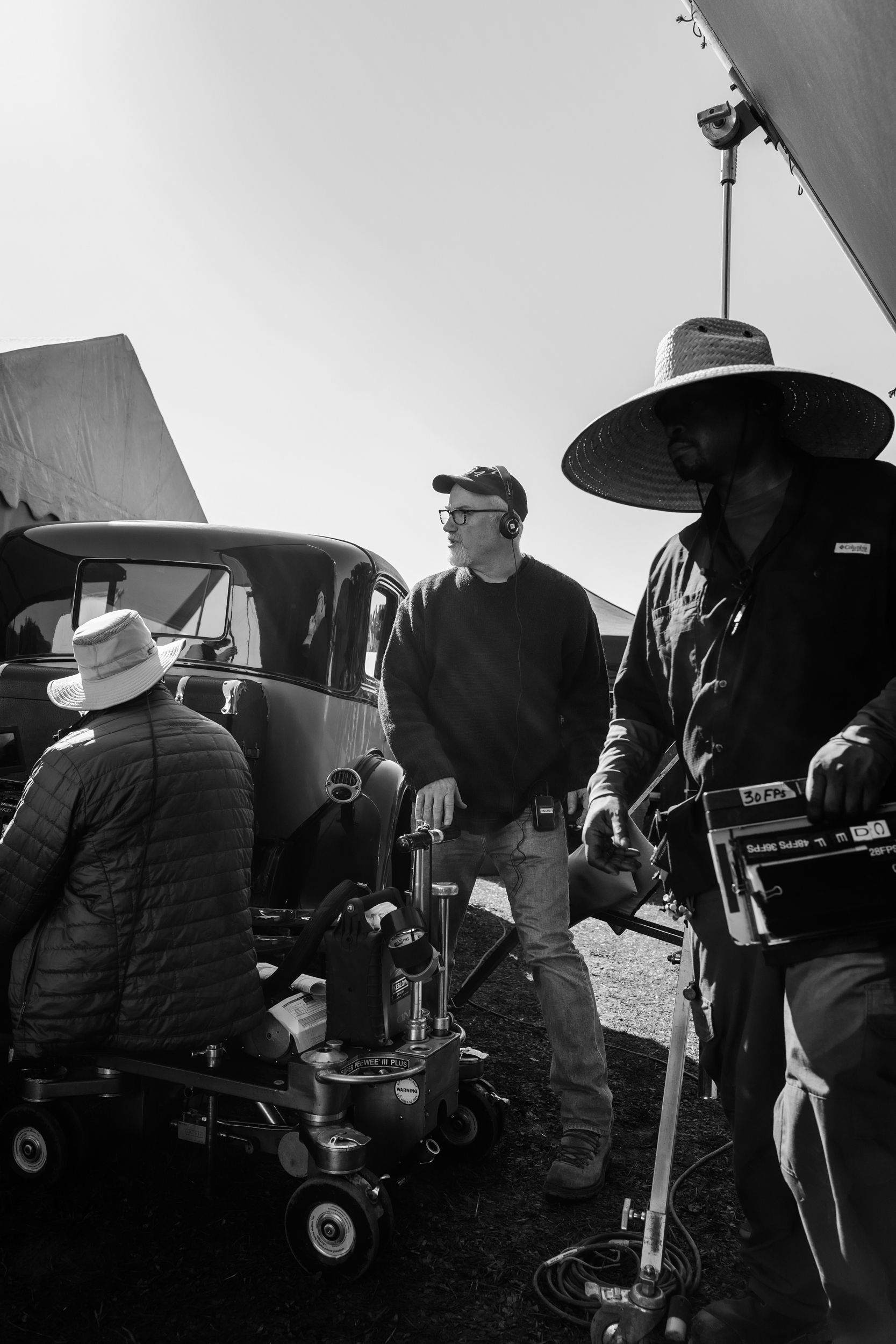
It could have helped you had to hold back 30 years to create it, not just because of this but additionally the political factors…
In 1996, whenever we had a go at causeing this to be and discussing fake newsreels, individuals were, “It’s quaint, but who provides fuck?”
Works out several people value it, actually.
[Laughs] I didn’t disagree with Polygram Pictures or General — I can’t keep in mind who it had been — at that time when they informed us that; I believed, “Yeah, this is a small quaint.” And today … It’s amusing, when I provided the script to Netflix, I thought to them, “Pay attention, I don’t understand, it’s about Aged Hollywood, it’s a throwback….” Plus they had been like, “No, wow, that is really about nowadays.” It’s like: The material stays exactly the same, but you and the planet around you modification. The truth that it came jointly in 2019 has been… It had been a shock if you ask me that Ted [Sarandos] and Cindy [Holland] mentioned: “Yeah, let’s do that.” But I wasn’t going to look at present horse in the mouth area. I had been like: “Okay, here’s an opportunity to finally take action.”
The film climaxes with an extended sequence of Gary Oldman’s Mank laying right into a bunch of rich people at among William Randolph Hearst’s costumed supper parties.Roughly just how many takes achieved it require to obtain that scene best?
Alright . . . [sighs] so why don’t we today get into the idea of “He does therefore several requires,” because this can be a narrative that has dropped its bridle. We photo that picture for three-and-a-half to four times, that one scene. I believe we do 10 or 12 takes per set up, and we probably do 40 setups with two cameras to obtain everything. Granted, it’s plenty of work with Gary. He’s surely got to gird himself, and he’s surely got to allow loose. It’s exhausting. I believe it offers the actors another sense of beginning, center, and end, nevertheless, and I believe that’s a significant thing. So, this entire thing of “Oh, the starting of The SOCIAL NETWORKING, it’s 99 will take!” Properly, it’s 99 gets control two nights and 12 setups. I believe that there’s an inherent insufficient knowing over how this functions. I’m not here to state that I ensure it is as simple on everyone when i are able to, but . . .
Which means that your reputation because the filmmaker would you 70 takes of each picture . . .
But I don’t! I don’t perform 70 requires of everything!
. . . will be incredibly overinflated? Only a “printing the legend” thing since it produces good copy?
Yeah. Look, should you choose 14 takes and typically you use consider 12, that’s pretty good. Should you choose 14 will take and you more often than not make use of take two, your procedure is probably not working out for you [laughs].
I was previously a lot more sheepish about stating, “OK, allow’s do a different one,” because I have been led to think, just as an actor would believe, “You want a different one, what am I carrying out incorrect?” You’re not really doing anything incorrect. And incidentally, I’m not doing anything incorrect by requesting for a different one. What we’re attempting to do correct is get this to whole factor seem effortless and enjoy it simply fell off the vehicle this way. And I experience like this’s my obligation.
There’s this idea films are usually dying. They’re not really. They’re simply changing. You change using them. People can do things we haven’t however imagined.
When you registered to accomplish House of Cards, did you have any sense that you’d be facilitating this massive paradigm shift in television?
To begin with, I never got a call from Netflix saying, “Hey, how do you want to be engaged in a paradigm shift?” That didn’t happen [laughs]. But I was thinking about longer-form storytelling, also it probably started with watching the cold embrace of a mass audience to Zodiac [Fincher’s 2007 slow burn concerning the search for the Zodiac Killer]. I’d thought, “Well, two hours and 45 minutes isn’t that long.” But apparently it had been. Just getting visitors to arrived at the theaters for a movie that long became a bridge too much. Generally, folks who are spending 15 bucks to visit a movie, they want a thing that’s shaped as an arrow and traveling as fast as possible to its intended destination. The idea of a narrative where you’re three hours in then one happens that’s likely to make you completely reassess everything you thought of among the lead characters? That’s interesting.
Which means you were already considering television when Netflix came calling?
I never saw a location for myself in network television. At one point, I have been offered to be able to direct the pilot for Deadwood. I met with David Milch, who I was enormously impressed with, so when I browse the script, I thought, “It’s not television, it’s HBO!” [Laughs.] I was a lot more intoxicated with the thought of doing a thing that sprawling. When House of Cards was found, among the things we said was, “We wish you to think about the remote because the paperback by your bed. There’s a Chapter One, a Chapter Two. . . . It’s something you sign in and go back to.”
It’s the start of Binge TV.
I recall hearing Netflix getting pushback for the thought of uploading all 12 or 13 episodes in a single day. Folks at CAA were saying, “You want to participate the watercooler conversation. We just like the HBO model.” And I spoke up and said, “Guys, it’s only a different watercooler conversation. It’s what chapter you’re on.”
You understand, I hadn’t heard about Breaking Bad until Season 3. People have been telling me to view it, so I chock-full my DVR and watched plenty of it simultaneously, and that’s how I experienced it. Steven Soderbergh is yelling at me, “Dude, go back home at this time. Press play.” That has been what got me to view it! I simply said, we owe it to ourselves to create supporting this sort of discovery submit glove with the Netflix experience. That’s why it had been a binge fest.
Early in your job, you were section of a wave of filmmakers who helped define a particular kind of Nineties movie, which all culminates in 1999 — that’s arguably the very best year for American filmmaking since 1974.
What arrived in 1974?
The Godfather: Part II, Chinatown, The Parallax View, The Conversation, Alice Doesn’t Live Here Anymore . . .
The Godfather: Part II is really a very good movie [laughs]. OK, I’ll buy it.
In ’99, it had been Being John Malkovich, Three Kings, Magnolia, Election, The Matrix, to mention a few. Did you are feeling like you were section of something bigger happening at that time, or was it similar to, “I’m not attempting to take up a revolution . . .”
“. . . I’m just attempting to make my little movie before anyone realizes how homoerotic it really is”? The next one [laughs]. I recall seeing the trailers and saying, “Um, I’m not sure the planet Wrestling Federation market that you’re aiming this at will appreciate the homoerotic overtones of what it really is that people’re selling.”
I’ve talked to Soderbergh and Charlie Kaufman concerning this . . .
Both highly unreliable narrators! [Laughs] Continue.
Also it does feel just like ’99 is this singular moment when this generation of filmmakers are surfing the zeitgeist, the studios are spending money on it, the audiences is there for them —
I hate to interrupt you, but: the audiences weren’t always there for this. Actually, Fight Club barely opened and only covered itself on DVD, since it was finally contextualized properly for the audience that it had been designed for. But listen, I take your point and I’ll work to overlook my very own personal failure in assisting you together with your thesis.
Yeah, there have been plenty of interesting movies that were in development for a long period, and then each of them happened ahead out at exactly the same time and cross over. You can equate it to as soon as in the 1970s when Warners and Paramount were nausea there hands and going, “What do we have to do to obtain kids to visit the films again?” and these young filmmakers just step right in. But I certainly had not been, you know, likely to dinner with Spike Jonze going, “It’s this exciting time and energy to be alive, could it be not?” [Laughs.] It had been more like me hearing him saying, “I’m acting in a David Russell movie . . . and everyone’s in a fistfight!” We’d bigger problems. After all, I see everything you’re saying. However in 1999, I was in a bunker with my head down making Fight Club.
A movie so controversial that another filmmaker wished cancer you. [In a 2000 Rolling Stone interview, Paul Thomas Anderson said that after seeing half an hour of Fight Club, he thought, “I wish David Fincher testicular fucking cancer.”]
[Laughs.] Yeah. Look, I’ve experienced cancer with somebody that I really like, and I could understand if somebody thought . . . I didn’t believe we were making fun of cancer survivors or victims. I thought what Chuck [Palahniuk, on whose book the film was based] was doing was discussing a therapeutic environment that might be infiltrated or abused. We were discussing empathy vampirism. Cancer’s rough. It’s a fucking horrible thing. So far as Paul’s quote, I obtain it. In the event that you’re in a rough emotional state and you also’ve just experienced something major. . . . My father died, also it certainly made me feel different about death and suffering [pauses]. And my father probably liked Fight Club even significantly less than Paul did.
Have your feelings about social media marketing changed because you made The SOCIAL NETWORKING?
I don’t really know any thing about social media marketing.
May very well not be a dynamic participant, nevertheless, you did create a movie about Mark Zuckerberg that helped shape how people think about him. I’m sure you’ve been following news: Facebook have not really been clamping down on misinformation — actually, appears to be amplifying it. Can you feel like social media marketing has something to answer for, concerning the moment we’re in?
Censorship is really a slippery slope. I’ll definitely say if something’s factually inaccurate, it’s excellent that folks are pointing that out. How that’s interpreted is definitely the crux. Listen, I’m near 60 years old. THEREFORE I have trusted news sources, and I don’t really . . . I don’t do the Facebook, and I never did. I’m not saying that I didn’t head to senior high school with really fascinating people [laughs], I’ve just never particularly wished to check in using them. I waste my time with other shit that’s probably in the same way infinitely stupid.
You’ve discussed movies now basically being either “spandex summer” vehicles or “affliction winter” prestige films, and how your projects doesn’t match either category. Can you feel just like you’re the final of a dying variety of a certain kind of filmmaker?
No, I don’t think so. There will be individuals who are poking and prodding and digging and looking for new methods to do a similar thing, and new methods to do stuff that we haven’t even yet imagined. Look, directing movies is really a little like painting a watercolor from three blocks away by way of a telescope with a walkie-talkie and 90 people holding the brush. So when frustrating as that sounds, it’s also thrilling and invigorating as it pertains off.
Look, I really believe that the tragedy of cinema today is that we’re only a century in and we think we realize just what it is. We really don’t. What we’ve done is only refined can be an experience to a tale, that is The Hero with one thousand Faces again and again. We beat this drum and we beat it fairly regularly, because it’s a scam that pays out. But easily was to believe that people reach the limits of what cinema can perform, make us feel, discuss, I’d be inordinately depressed. I’m not. I’m emboldened and Personally i think that . . . I don’t need any longer published screeds of me discussing how unfair it really is that Marvel really wants to make money. I don’t have a concern with that. I’ve never really had a concern with that.
There’s this idea that the films are dying. They’re not. There’s still minerals to mine, you may still find jewels found, and you may still find various ways to be shocked, entertained, uplifted, terrified. They’re just changing. You change using them. I believe anyone who, like me, is interested in how exactly to impart their story, there’s likely to be plenty more opportunities, at the very least for a while. And depending on just how long this pandemic continues on, there may be dependence on far more.
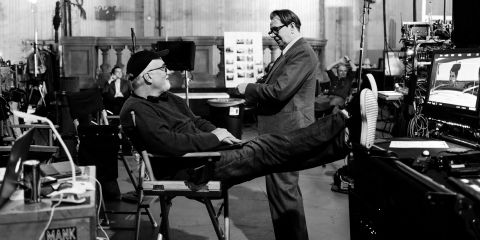

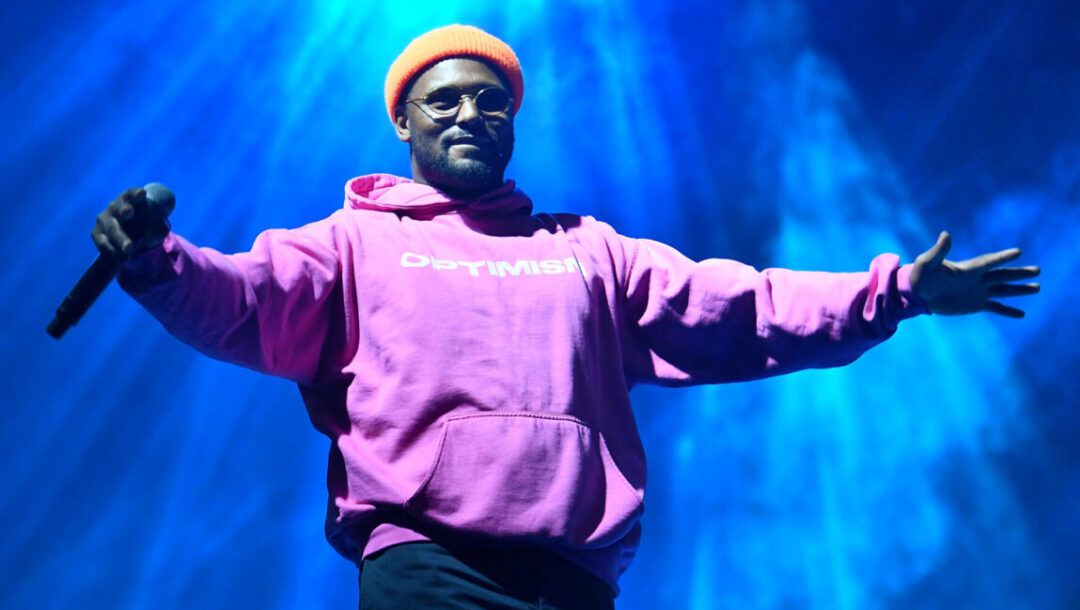
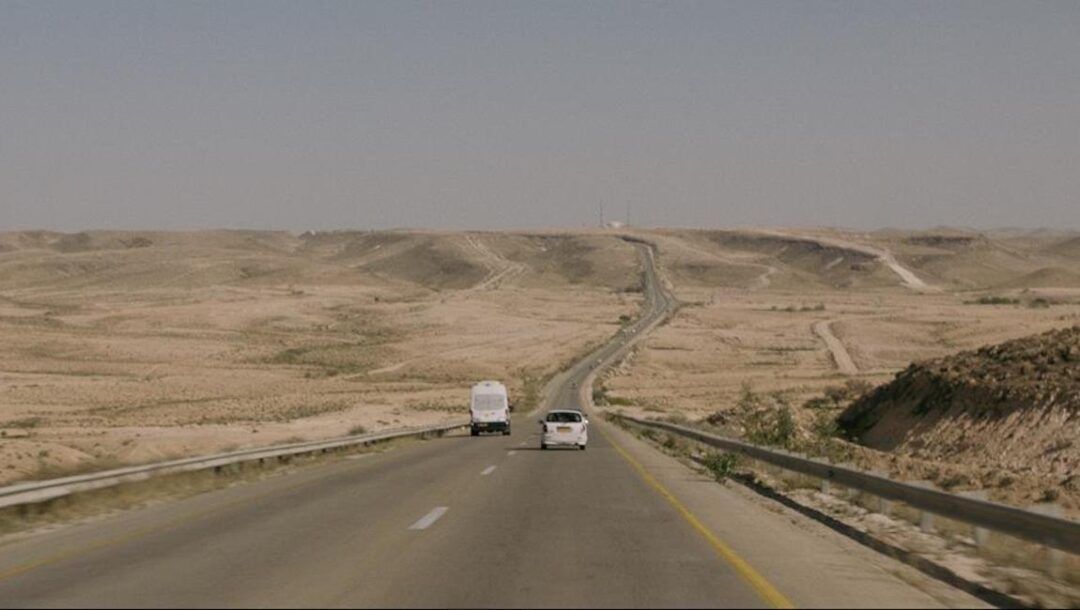
Recent Comments